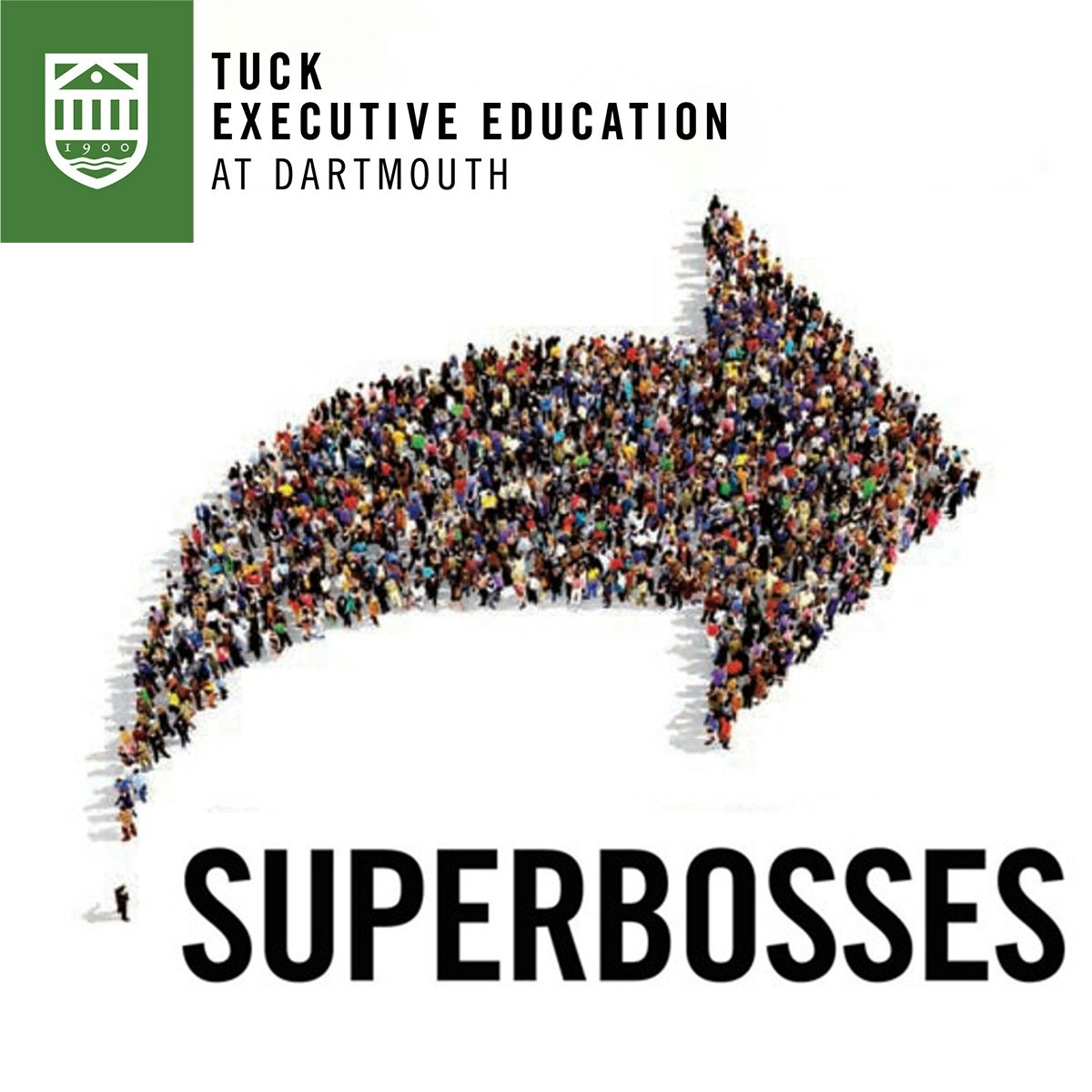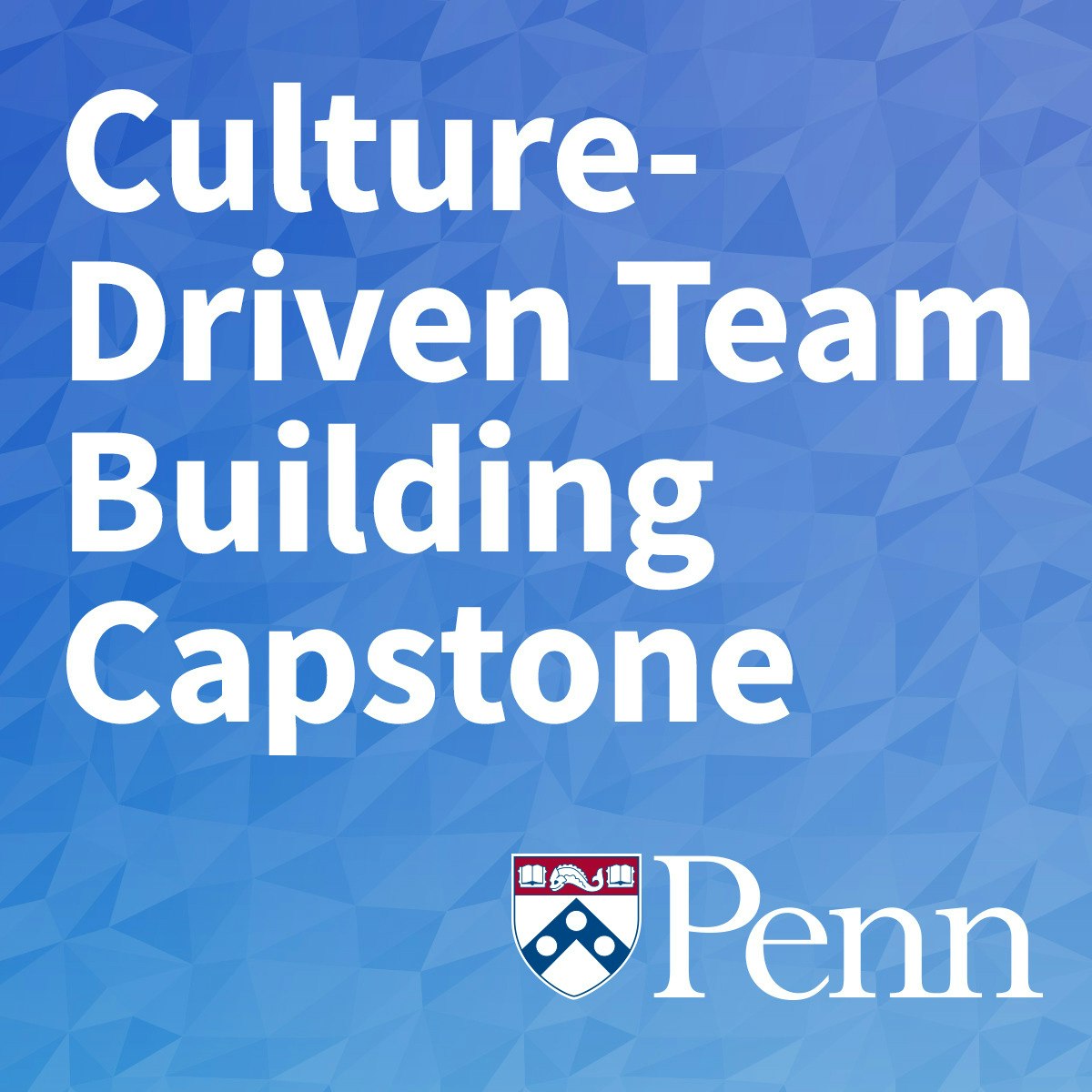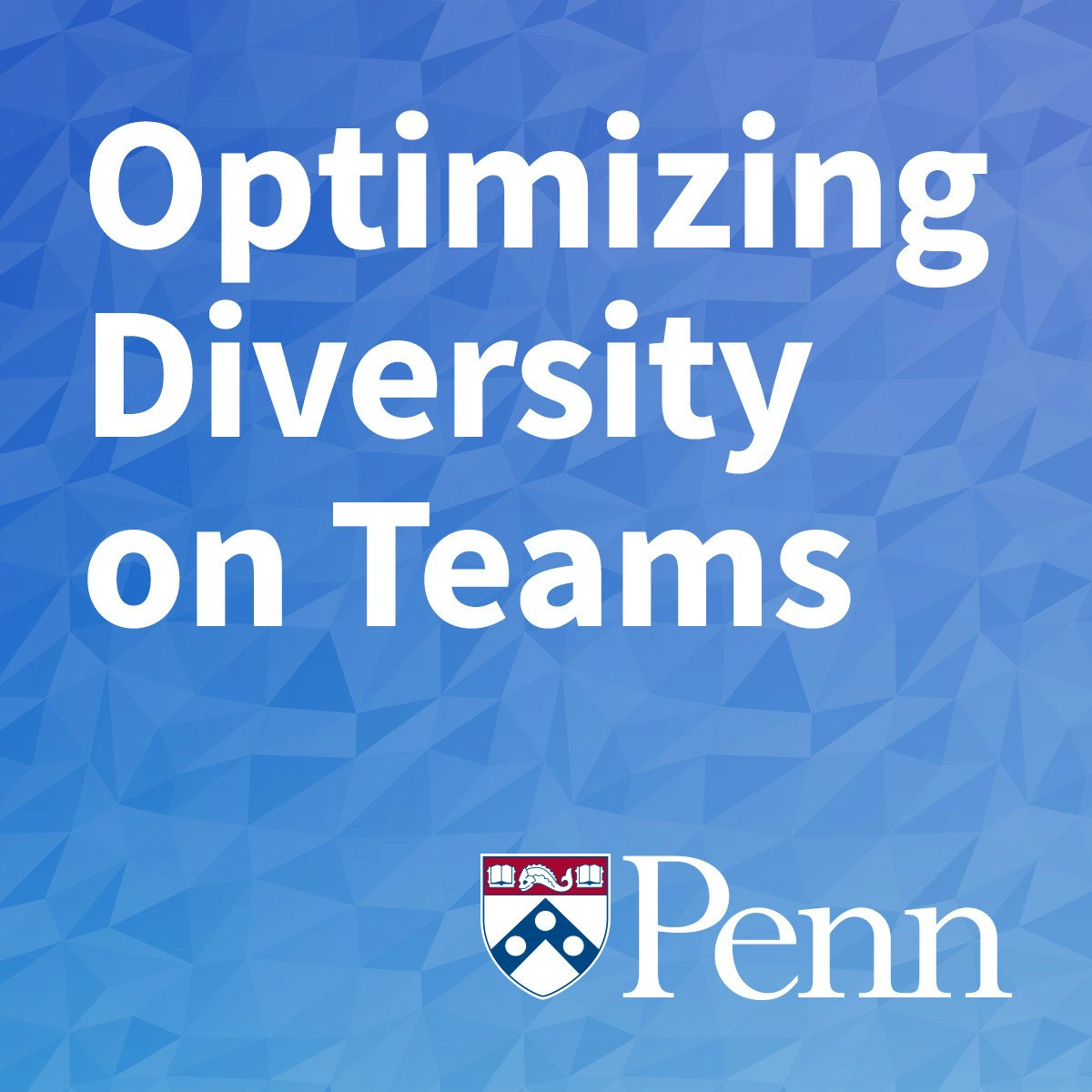Talent Management Consultant
A Comprehensive Guide to Becoming a Talent Management Consultant
Talent Management Consulting is a specialized field focused on helping organizations optimize their human capital to achieve strategic business objectives. These consultants act as expert advisors, guiding companies in attracting, developing, retaining, and managing their most valuable asset: their people. This role involves a blend of strategic thinking, analytical prowess, and a deep understanding of human behavior within organizational contexts.
Working as a Talent Management Consultant can be exceptionally rewarding. You might find yourself shaping the future workforce of diverse organizations, designing innovative programs that unlock employee potential, or directly contributing to a company's growth and success by ensuring the right people are in the right roles with the right skills. The dynamic nature of the work, often involving complex problem-solving and collaboration with senior leaders, also offers continuous learning and intellectual stimulation.
Introduction to Talent Management Consulting
This section delves into the fundamentals of talent management consulting, providing a clear picture of the profession's scope, evolution, and its vital role in contemporary business.
Defining the Discipline: Scope and Practice
At its core, talent management consulting involves a strategic approach to sourcing, hiring, developing, retaining, and planning for the workforce needs of an organization. Consultants in this field work with businesses of all sizes, from startups to multinational corporations, across various industries. Their primary goal is to align an organization's talent strategy with its overall business strategy, ensuring that human capital initiatives drive tangible results.
The scope of work is broad, encompassing areas such as workforce planning, leadership development, succession planning, performance management, employee engagement, organizational design, and change management. Consultants may be engaged for specific projects, like overhauling a company's performance review system, or for more comprehensive, long-term strategic talent initiatives. They employ a variety of tools and methodologies, including data analytics, assessments, workshops, and coaching, to deliver their services.
Imagine a company struggling to keep its best software engineers. A talent management consultant might be brought in to diagnose the problem. They would analyze exit interview data, conduct surveys, and talk to current engineers and managers. Based on this, they might discover issues with career progression paths or a lack of challenging projects. The consultant would then propose solutions, such as designing new career ladders, implementing a skills development program, or improving how project assignments are made to boost engagement and retention.
The Evolution of Talent Management
The concept of managing talent has evolved significantly over the decades. Early personnel management focused primarily on administrative tasks like payroll and compliance. As businesses recognized the strategic importance of their workforce, this function transformed into Human Resources Management, with a broader focus on recruitment, training, and employee relations.
The modern era of talent management emerged as organizations began to see their employees not merely as resources or costs, but as key drivers of innovation, competitive advantage, and long-term value. This shift was fueled by factors such as globalization, technological advancements, and an increasingly complex business environment. The role of the talent management consultant grew out of this need for specialized expertise in strategically managing human capital to navigate these challenges effectively.
Today, talent management is a critical C-suite concern, integral to strategic planning. Consultants in this space are expected to be forward-thinking, data-driven, and capable of helping organizations build agile and resilient workforces that can adapt to constant change.
Core Objectives in Today's Organizations
Modern organizations engage talent management consultants to achieve several critical objectives. A primary goal is to ensure the organization has the right talent to execute its business strategy, both now and in the future. This involves not just attracting top performers but also developing internal talent and creating robust leadership pipelines.
Another key objective is enhancing employee engagement and productivity. Consultants help design environments and implement practices that motivate employees, foster a positive culture, and enable individuals to perform at their best. This can involve initiatives related to employee value proposition, recognition programs, and well-being strategies. For instance, a consultant might help a company build a comprehensive employee wellness program to reduce burnout and improve morale.
Ultimately, the core objective is to drive organizational performance and achieve sustainable competitive advantage through people. This means helping organizations become more agile, innovative, and resilient by optimizing their talent strategies. This includes improving retention of critical talent, managing organizational change effectively, and ensuring that talent practices are fair, equitable, and legally compliant.
Key Responsibilities of a Talent Management Consultant
Talent Management Consultants undertake a variety of strategic activities. Their responsibilities are diverse, focusing on optimizing an organization's human capital to meet its goals. This section outlines some of the central duties in this dynamic field.
Devising Workforce Planning Strategies
Workforce planning is a foundational responsibility, involving the analysis of an organization's current employee base and the forecasting of future talent needs. Consultants help businesses understand the skills and roles required to achieve strategic objectives, identify potential gaps, and develop plans to address them. This might involve analyzing demographic trends, skill adjacencies, and market demands.
To illustrate, a consultant might help a retail company prepare for a shift towards e-commerce. This would involve identifying the new digital marketing, data analysis, and logistics skills needed. They would then create a plan that could include retraining existing staff, hiring new specialists, or strategically using contractors. Effective workforce planning ensures that the company is not caught off-guard by skill shortages or surpluses, enabling smoother transitions and sustained growth.
Data plays a crucial role here. Consultants often use sophisticated workforce analytics to inform their strategies, looking at metrics like attrition rates, time-to-fill positions, and internal mobility. The aim is to make proactive, evidence-based decisions about talent.
For those looking to build a strong foundation in strategic workforce management, understanding how to align human resources with overarching business goals is key. Online courses can provide valuable frameworks and practical tools.
Designing Leadership Development Programs
Nurturing future leaders is critical for any organization's long-term success. Talent Management Consultants are frequently tasked with designing and sometimes implementing comprehensive leadership development programs. These programs aim to identify high-potential employees and equip them with the skills, knowledge, and experiences necessary to take on greater responsibilities.
The design process often begins with defining what effective leadership looks like within that specific organization's culture and strategic context. Consultants then craft programs that might include formal training, executive coaching, mentorship opportunities, action learning projects, and rotational assignments. The goal is to create a holistic development experience that builds a strong leadership pipeline from within.
Consider a scenario where a company wants to promote more women into senior roles. A consultant might design a targeted leadership program that addresses specific challenges female leaders may face, provides specialized skill-building, and connects participants with senior female mentors and sponsors. This strategic approach helps to build a more diverse and capable leadership team.
These courses offer insights into managing talent and fostering leadership, which are core components of a consultant's toolkit.
Developing effective leadership is a cornerstone of talent management. These books provide deep insights into strategies and practical applications.
Implementing Succession Planning
Succession planning is the systematic process of identifying and developing internal talent to fill critical leadership positions in the future. Talent Management Consultants play a key role in helping organizations establish and refine these processes. This ensures business continuity and reduces the risks associated with unexpected leadership vacancies.
The implementation involves identifying key roles, defining the competencies required for these roles, assessing potential internal candidates, and creating tailored development plans to prepare them. It’s not just about creating a list of names; it's about actively developing future leaders so they are ready when opportunities arise. This proactive approach is far more effective than scrambling to find a replacement when a key leader departs.
For instance, a consultant might work with a family-owned business to plan for the retirement of its founder. This would involve facilitating discussions about the future vision, identifying potential successors within the family or the company, assessing their readiness, and designing a multi-year development and transition plan. This ensures a smooth handover and preserves the company's legacy.
This book is a comprehensive guide for anyone involved in ensuring leadership continuity within an organization.
Analyzing Employee Engagement
Employee engagement refers to the level of an employee's commitment and connection to an organization and its goals. Highly engaged employees are typically more productive, innovative, and less likely to leave. Talent Management Consultants help organizations measure, understand, and improve employee engagement levels through systematic analysis.
This often involves designing and administering employee surveys, conducting focus groups, and analyzing various data points (e.g., absenteeism, performance metrics, exit interview feedback). The insights gained are then used to identify key drivers of engagement and areas for improvement. For example, if data shows low engagement in a particular department, a consultant might investigate further to find root causes, which could range from poor management practices to lack of growth opportunities.
Based on the analysis, consultants recommend targeted interventions. These could include leadership training for managers, improvements to communication channels, redesigned job roles, or enhanced recognition programs. The focus is on creating a work environment where employees feel valued, motivated, and empowered to contribute their best.
Online courses can offer practical strategies for fostering a more engaged and productive workforce.
Formal Education Pathways
A strong educational foundation is often beneficial for a career as a Talent Management Consultant. While diverse backgrounds can lead to this field, certain academic paths provide particularly relevant knowledge and skills. This section explores common educational routes.
Pertinent Undergraduate Degrees
Several undergraduate majors can pave the way for a career in talent management. Degrees in Human Resources Management are a direct route, providing foundational knowledge in HR practices, labor law, and organizational behavior. Business Administration or Commerce degrees, especially with a concentration in HR or management, offer a broader understanding of business operations, which is crucial for aligning talent strategy with company goals.
Psychology, particularly Industrial-Organizational (I/O) Psychology, is another highly relevant field. I/O Psychology focuses on human behavior in the workplace, covering topics like personnel selection, training, organizational development, and performance appraisal. This provides a scientific basis for many talent management interventions.
Regardless of the specific major, coursework in statistics, research methods, communications, and ethics can be extremely valuable. Developing strong analytical and critical thinking skills during undergraduate studies is essential for success in this data-influenced and strategic role. Exploring courses on OpenCourser Business can help identify areas of interest.
Graduate Programs and Specializations
For those seeking to deepen their expertise or aim for more senior consulting roles, a graduate degree can be a significant asset. A Master of Business Administration (MBA) with a specialization in Human Resources or Strategy provides a strong combination of business acumen and HR expertise. Specialized Master's degrees in Human Resources Management (MHRM), Organizational Development (MOD), or I/O Psychology offer more focused and in-depth knowledge.
These graduate programs often delve into advanced topics such as strategic talent management, change leadership, HR analytics, compensation and benefits design, and global human resource management. Many programs also include practical components like consulting projects or internships, allowing students to apply their learning in real-world settings.
Choosing a program often depends on individual career goals. An MBA might be preferred for those aspiring to high-level executive roles or broader management consulting, while a specialized Master's might be ideal for those wanting to become deep subject matter experts in talent management.
Exploring Research in Organizational Dynamics
For individuals with a strong inclination towards academic inquiry or a desire to contribute to the theoretical underpinnings of the field, pursuing research opportunities can be a rewarding path. This typically involves doctoral studies (Ph.D.) in areas like Organizational Behavior, Human Resource Management, or I/O Psychology.
Research in these fields explores complex questions about how individuals and groups behave in organizations, what motivates employees, how leadership impacts performance, the dynamics of organizational change, and the effectiveness of various HR interventions. Academics in this area contribute to the body of knowledge that practitioners then apply.
While a Ph.D. is primarily a route to an academic career, some research-oriented individuals also find roles in large consulting firms as subject matter experts or in internal research functions within major corporations. Their work can involve developing new assessment tools, validating talent management models, or conducting large-scale studies on workforce trends.
Online Learning Strategies for Aspiring Consultants
The digital age offers abundant opportunities for learning and skill development, making it easier than ever to prepare for or advance in a talent management consulting career. Online learning platforms provide flexible and accessible ways to gain relevant knowledge, acquire new skills, and even build a portfolio to showcase your capabilities, especially for those changing careers or seeking to supplement traditional education.
Gaining Expertise through Online Courses and Certifications
Online courses are an excellent way to build a foundational understanding of talent management principles or to delve into specialized areas. Platforms like OpenCourser aggregate thousands of courses, allowing learners to find specific topics such as HR analytics, leadership development, organizational design, or change management. Many courses are offered by reputable universities and industry experts, providing high-quality instruction.
Industry certifications, often obtainable through online study and examination, can further enhance your credentials. Certifications in areas like strategic HR, talent development, or specific HR technologies can demonstrate a commitment to the field and a validated level of expertise. These can be particularly beneficial for career switchers looking to signal their new focus to potential employers.
The flexibility of online learning allows individuals to study at their own pace, fitting education around work or other commitments. This makes it a practical option for working professionals looking to upskill or for those exploring a new career path without immediately committing to a full-time degree program. Many courses offer shareable certificates upon completion, which can be added to your professional profiles.
These online courses cover essential aspects of talent management, from strategic approaches to specific skills like conflict resolution, which are vital for consultants.
Practical Application: Virtual Simulations and Portfolio Projects
Beyond theoretical knowledge, practical application is key. Some online learning experiences include virtual simulations where learners can practice decision-making in realistic organizational scenarios, such as managing a change initiative or designing a recruitment strategy. These simulations offer a safe environment to test skills and learn from outcomes.
Building a portfolio of project work is another powerful way to demonstrate capabilities, especially for those new to the field. Online courses might provide assignments that can form the basis of portfolio pieces. For example, you could develop a sample workforce plan for a hypothetical company, design a leadership training module, or conduct a mock employee engagement survey analysis. Such projects allow you to apply what you've learned and create tangible evidence of your skills.
These projects can be showcased on professional networking sites or discussed during interviews. For someone transitioning careers, a well-crafted portfolio project can speak volumes about their dedication and ability to perform the tasks required of a talent management consultant, bridging the gap between past experience and future aspirations.
Consider these books for practical insights and frameworks that can inform your portfolio projects and deepen your understanding of talent development.
Crafting a Hybrid Learning Experience
While online learning offers immense benefits, combining it with offline experiences can create a powerful, well-rounded development path. This blended approach allows learners to gain theoretical knowledge and specialized skills online, while seeking out opportunities for practical application, networking, and mentorship in the physical world.
For example, one might complete online courses in talent analytics and then volunteer to assist a local non-profit with their HR data. Or, after learning about change management frameworks online, one could seek informational interviews with experienced consultants to understand how these are applied in practice. Attending industry conferences or local HR group meetings (even virtual ones initially) can also provide valuable connections and insights.
OpenCourser's Learner's Guide offers resources on how to structure self-learning paths and make the most of online educational opportunities. By strategically blending online courses with real-world application and networking, aspiring talent management consultants can build a strong profile and accelerate their career development. This proactive approach to learning demonstrates initiative and a commitment to continuous improvement, qualities highly valued in the consulting profession.
Career Progression Landscape
The career path for a Talent Management Consultant can be varied and dynamic, offering opportunities for growth, specialization, and leadership. Understanding the typical progression can help aspiring professionals and those in the field plan their development effectively.
Embarking on Your Talent Management Journey
Entry into the talent management field can occur through various roles. Common starting points include positions like HR Analyst, Talent Acquisition Coordinator, or HR Generalist with a talent-focused component. In these roles, individuals typically gain foundational experience in HR processes, data analysis, recruitment, and employee relations.
For those specifically targeting consulting from the outset, some larger firms offer entry-level analyst or associate consultant positions, often requiring a strong academic background and demonstrated analytical and problem-solving skills. These roles usually involve supporting senior consultants on projects, conducting research, and learning the consulting craft.
Key skills at this stage include a strong learning orientation, adaptability, good communication abilities, and an aptitude for understanding organizational dynamics. Building a solid understanding of core HR principles and business fundamentals is crucial for future advancement.
Advancement and Specialization Pathways
As professionals gain experience, they can move into more specialized and senior roles. This might involve becoming a Talent Management Specialist, focusing on areas like leadership development, succession planning, or organizational design. Within consulting firms, progression often leads to roles like Consultant, Senior Consultant, and Manager, with increasing responsibility for project leadership and client management.
Professionals in corporate HR roles may also transition into talent management consulting after developing expertise in-house. Conversely, consultants might move into corporate talent management leadership positions. Mid-career development often focuses on deepening expertise in specific talent domains, honing strategic thinking, and developing strong stakeholder management and influencing skills.
This stage is often where individuals decide to specialize further, perhaps in a particular industry or a niche area of talent management like diversity and inclusion strategy or HR technology implementation. Continuous learning and staying abreast of industry trends are vital for sustained growth.
Ascending to Senior and Executive Leadership
With significant experience and a track record of impactful work, Talent Management Consultants can reach senior leadership positions. In consulting firms, this might include roles like Principal Consultant, Partner, or Practice Leader, where they are responsible for business development, thought leadership, and managing large teams of consultants.
In corporate settings, experienced talent professionals can aspire to roles such as Director of Talent Management, Vice President of HR, or even Chief Human Resources Officer (CHRO). At these executive levels, the focus shifts towards shaping the overall talent strategy of the organization, advising senior leadership, and driving large-scale organizational change initiatives.
Success at this level requires exceptional strategic acumen, leadership presence, business insight, and the ability to navigate complex organizational politics. Many senior leaders in this field also contribute to the profession through speaking engagements, publications, and mentoring.
Exploring Diverse and Alternative Career Avenues
The skills and experience gained in talent management consulting open doors to a variety of alternative career paths. Some seasoned consultants choose to establish their own independent consulting practices, offering specialized services to a portfolio of clients. This path offers autonomy and the ability to focus on particular areas of interest.
Executive coaching is another common avenue, where consultants leverage their expertise in leadership development and behavioral change to work one-on-one with senior leaders. Others may transition into academia, teaching and conducting research in HR or organizational behavior at universities.
Furthermore, the strategic and analytical skills honed in talent management are transferable to broader business consulting roles or even operational leadership positions in organizations that heavily prioritize human capital. The versatility of the skillset ensures that experienced professionals have a range of interesting options throughout their careers.
Industry Trends Impacting Talent Management Consultants
The field of talent management is continually evolving, shaped by technological advancements, societal shifts, and changing business priorities. Consultants must stay informed about these trends to provide relevant and impactful advice. This section explores some key developments influencing the profession.
The Ascendance of AI and Technology in Talent Processes
Artificial Intelligence (AI) and other advanced technologies are profoundly transforming how organizations manage talent. AI-powered tools are increasingly used for tasks such as screening resumes, identifying suitable candidates, personalizing learning and development paths, and analyzing employee sentiment. Data analytics and people analytics platforms provide deeper insights into workforce trends, enabling more evidence-based decision-making.
For talent management consultants, this trend presents both opportunities and challenges. They need to be technologically savvy, understanding how to leverage these tools effectively and ethically. Consultants are also called upon to help organizations select, implement, and integrate new HR technologies, as well as manage the change associated with their adoption. According to Gartner's research on HR trends, leader and manager development is a top priority, often supported by new technological solutions for learning and coaching.
The ability to interpret data and translate it into actionable talent strategies is becoming an indispensable skill. This includes understanding the capabilities and limitations of AI in talent management to ensure fairness and avoid bias.
Navigating Global Talent Mobility and Remote Work
Globalization and the rise of remote and hybrid work models have created a more complex and distributed talent landscape. Organizations increasingly source talent globally and manage teams spread across different geographies and time zones. This presents unique challenges in terms of recruitment, onboarding, collaboration, performance management, and maintaining a cohesive organizational culture.
Talent Management Consultants help organizations develop strategies for effective global talent mobility, including policies for international assignments and remote work. They advise on how to build inclusive virtual teams, leverage technology for collaboration, and adapt talent practices to diverse cultural contexts. The focus is on creating flexible and agile talent models that can tap into a wider talent pool while ensuring productivity and engagement.
Understanding international labor laws, cultural nuances, and best practices for managing distributed workforces are becoming critical competencies for consultants working with multinational or globally aspiring organizations. As highlighted in McKinsey's "The state of organizations 2023" report, making hybrid work effective is a key organizational shift.
Adapting to a Multigenerational and Diverse Workforce
Workplaces today are often composed of multiple generations—from Gen Z to Baby Boomers—each with potentially different work styles, expectations, and motivations. Furthermore, there's a growing emphasis on diversity, equity, and inclusion (DEI) as drivers of innovation and business success. Talent Management Consultants play a vital role in helping organizations navigate these demographic shifts.
This involves designing talent strategies that are inclusive and cater to the diverse needs of a multigenerational workforce. Consultants may help develop flexible work arrangements, tailored communication strategies, intergenerational mentoring programs, and DEI initiatives that foster a sense of belonging and equal opportunity for all employees. The goal is to create a harmonious and productive environment where everyone can thrive.
Understanding the unique perspectives of different employee segments and translating these insights into effective talent practices requires empathy, cultural competence, and a commitment to fairness. This course can help build skills in fostering diverse and high-performing teams.
This book provides valuable insights into creating inclusive environments.
Emphasizing and Measuring the ROI of Talent Initiatives
In an increasingly data-driven business world, there is a growing demand for talent management functions to demonstrate their value in tangible, measurable terms. Organizations want to see a clear return on investment (ROI) for their spending on recruitment, development, engagement, and other talent initiatives. Talent Management Consultants are instrumental in helping establish these measurement frameworks.
This involves identifying key performance indicators (KPIs) that link talent outcomes (e.g., improved retention, faster time-to-productivity, higher leadership effectiveness) to business results (e.g., increased revenue, reduced costs, better customer satisfaction). Consultants help design data collection methods, analytical approaches, and reporting mechanisms to track these KPIs and calculate ROI. As noted by organizations like SHRM, effectively measuring the ROI of talent acquisition and development is crucial for strategic HR.
This focus on metrics and accountability requires consultants to possess strong analytical skills and the ability to communicate the business impact of talent strategies to senior executives. This course directly addresses the connection between employee well-being and organizational returns.
Ethical Challenges in Talent Management Consulting
The work of a Talent Management Consultant often involves access to sensitive information and making recommendations that can significantly impact individuals' careers and organizational structures. Therefore, a strong ethical compass and awareness of potential dilemmas are paramount. This section discusses some common ethical challenges in the field.
Upholding Data Privacy in Employee Assessments and Analytics
Talent management heavily relies on data, from employee performance metrics and assessment results to engagement survey responses and personal information. Consultants have an ethical obligation to ensure this data is collected, stored, analyzed, and used responsibly and in compliance with privacy regulations such as GDPR or CCPA. This includes obtaining informed consent where necessary, anonymizing data when appropriate, and implementing robust security measures to prevent breaches.
The challenge lies in balancing the benefits of data-driven talent insights with the individual's right to privacy. For example, when using employee monitoring software or people analytics tools, consultants must advise clients on ethical boundaries and ensure transparency with employees about how their data is being used. Maintaining confidentiality is critical to building trust with both clients and their employees.
Consultants must stay updated on evolving data privacy laws and best practices, advocating for ethical data governance within client organizations. This commitment to privacy is fundamental to the integrity of the profession.
Promoting Fairness and Mitigating Bias in Talent Decisions
Unconscious bias can creep into various talent processes, including hiring, promotion, performance evaluation, and succession planning, leading to unfair outcomes and hindering diversity efforts. Talent Management Consultants have a responsibility to help organizations identify and mitigate these biases. This involves promoting objective criteria, structured decision-making processes, and diverse perspectives in talent assessments.
For instance, when designing a selection process, a consultant should recommend using validated assessment tools, structured interviews with standardized questions, and diverse interview panels to reduce the impact of individual biases. They might also advise on training programs to raise awareness of unconscious bias among managers and decision-makers.
The ethical imperative is to ensure that talent decisions are based on merit, skills, and potential, rather than on factors like race, gender, age, or personal connections. This not only promotes fairness but also leads to better talent outcomes for the organization by ensuring access to the widest possible pool of qualified individuals. Searching on OpenCourser for mitigating bias in hiring courses can provide further insights.
Demonstrating Cross-Cultural Competency and Sensitivity
In an increasingly globalized world, many talent management initiatives span different countries and cultures. What works well in one cultural context may not be effective or appropriate in another. Talent Management Consultants must possess strong cross-cultural competency and sensitivity to navigate these complexities ethically.
This means understanding and respecting cultural differences in communication styles, leadership preferences, attitudes towards hierarchy, and perceptions of fairness. Consultants must avoid imposing ethnocentric solutions and instead adapt their recommendations to align with local norms and values, while still upholding universal ethical principles.
For example, a performance management system that emphasizes direct, individual feedback might be well-received in some Western cultures but could be counterproductive in collectivist cultures where indirect communication and group harmony are valued. Ethical practice requires careful consideration of these nuances to ensure that talent strategies are both effective and respectful of cultural diversity.
Managing Conflicts of Interest and Difficult Decisions
Consultants may face situations where their recommendations involve difficult choices with significant human impact, such as during organizational restructuring, downsizing, or mergers and acquisitions. Ethical challenges can arise regarding how these processes are managed, including transparency, fairness to affected employees, and balancing the organization's needs with individual well-being.
Conflicts of interest can also occur. For example, a consultant might be pressured to recommend a particular vendor or a solution that benefits their firm but isn't necessarily the best fit for the client. Maintaining objectivity and prioritizing the client's best interests are crucial ethical responsibilities.
Navigating these situations requires integrity, courage, and clear communication. Consultants must be prepared to provide honest, sometimes unwelcome, advice and to advocate for processes that are as fair and humane as possible, even in difficult circumstances. This commitment to ethical conduct builds long-term trust and credibility. Exploring topics on Professional Development on OpenCourser can offer broader ethical frameworks.
Essential Competencies for Success
To excel as a Talent Management Consultant, a unique blend of skills and abilities is required. These competencies go beyond general HR knowledge, emphasizing strategic thinking, analytical capabilities, and strong interpersonal effectiveness. This section highlights key attributes that distinguish successful practitioners in this field.
Sharp Analytical and Diagnostic Abilities
A core competency is the ability to thoroughly diagnose an organization's talent-related challenges and opportunities. This involves more than just identifying symptoms; it requires digging deep to understand root causes. Consultants must be skilled in gathering and analyzing various forms of data—quantitative (e.g., workforce metrics, survey results) and qualitative (e.g., interviews, focus group feedback)—to form a comprehensive picture.
This analytical prowess allows them to move beyond surface-level problems and identify systemic issues that may be hindering talent effectiveness. For example, high turnover might be a symptom, but the underlying cause could be poor leadership, lack of growth opportunities, or a misaligned compensation structure. Strong diagnostic skills enable consultants to pinpoint these fundamental issues and develop targeted solutions.
This involves a level of strategic problem-solving that differentiates a consultant from an HR administrator. It’s about asking the right questions, challenging assumptions, and connecting disparate pieces of information to reveal a coherent understanding of the talent landscape within an organization.
Mastery of Stakeholder Influence and Engagement
Talent Management Consultants rarely implement changes by fiat; they must effectively influence and engage a variety of stakeholders, including senior executives, line managers, HR professionals, and employees. This requires exceptional communication, persuasion, and relationship-building skills.
Consultants need to be able to articulate a compelling case for change, present complex information clearly and concisely, and tailor their communication style to different audiences. Building trust and credibility with stakeholders is essential for gaining buy-in for recommendations and for navigating the political dynamics often present in organizations.
This is particularly crucial because talent initiatives often require significant shifts in mindset and behavior. Successfully guiding an organization through such changes depends heavily on the consultant's ability to inspire confidence, address concerns, and foster a collaborative approach to problem-solving and implementation. Consider exploring management courses on OpenCourser for broader influencing strategies.
These books delve into crucial aspects of leadership and communication, essential for stakeholder engagement.
Proficiency in Change Management Methodologies
Most talent management initiatives, whether it's implementing a new performance system, rolling out a leadership program, or restructuring a department, involve significant organizational change. Therefore, a strong understanding of change management frameworks (such as Kotter's 8-Step Model or Prosci's ADKAR Model) and the ability to guide organizations through transitions are vital.
This competency involves more than just knowing the theories; it means being able to assess an organization's readiness for change, develop a comprehensive change management plan, communicate effectively throughout the process, and address resistance constructively. Consultants act as change agents, helping to smooth the transition and ensure that new initiatives are adopted successfully and sustainably.
Effective change management minimizes disruption, maintains employee morale, and ultimately increases the likelihood that the talent initiative will achieve its intended benefits. This specialized skill set is a key differentiator for impactful talent management consultants.
Achieving a Balance of Quantitative and Qualitative Insights
While data and analytics are increasingly important in talent management, truly effective consultants also recognize the value of qualitative insights and the human element. Success in this field requires the ability to skillfully blend quantitative analysis with a nuanced understanding of organizational culture, individual motivations, and interpersonal dynamics.
This means not only being comfortable with numbers and metrics but also possessing strong intuition, empathy, and observational skills. For example, while data might indicate a problem with team performance, qualitative insights from interviews or observations could reveal underlying issues related to team cohesion or leadership style that numbers alone might not capture.
The most effective talent solutions are typically those that are both data-informed and human-centered. Consultants who can strike this balance are better equipped to develop holistic strategies that are not only strategically sound but also practical, culturally appropriate, and engaging for the people they are designed to support.
This course covers strategy and planning, which are essential for balancing data with human factors.
Frequently Asked Questions (Career Focus)
For those considering a career as a Talent Management Consultant, or looking to advance in the field, several common questions arise. This section addresses some of these practical concerns to provide clearer insights.
What are the typical salary ranges by experience level?
Salary expectations for Talent Management Consultants vary significantly based on factors like geographic location, the size and type of consulting firm or employer, years of experience, educational background, and specific areas of expertise. Entry-level positions, such as an analyst, might start in a range of $60,000 to $80,000 annually in many developed economies. Mid-career consultants with several years of experience can often earn between $90,000 and $150,000 or more. Senior consultants, principals, or partners in established firms, as well as senior in-house talent leaders, can command salaries well exceeding $150,000, potentially reaching into the low to mid six-figures, especially with bonuses and profit-sharing. According to the U.S. Bureau of Labor Statistics, Management Analysts, a category that can include some consultants, had a median annual wage of $99,410 in May 2022. It's always advisable to research current salary benchmarks for specific regions and roles.
How does a talent management consulting role differ from an in-house corporate HR role?
While both roles focus on an organization's people, there are key differences. Talent Management Consultants typically work with multiple clients across various industries, offering an external, objective perspective on specific projects or strategic challenges. Their work is often project-based, with a strong emphasis on diagnosis, strategy development, and advisory services. This can offer great variety and exposure to diverse business problems. In-house corporate HR professionals, including those in talent management roles, work deeply within one organization. They are responsible for the ongoing implementation, management, and refinement of HR and talent programs. They develop an intimate understanding of their organization's culture and long-term needs, focusing on sustained execution and integration of talent practices. The choice often depends on whether one prefers variety and advisory work (consulting) or deep organizational impact and ongoing program management (corporate).
How valuable are industry certifications compared to on-the-job experience?
Both industry certifications and on-the-job experience hold significant value, and they often complement each other. On-the-job experience is paramount as it demonstrates the practical application of knowledge and skills in real-world scenarios, showing proven results and adaptability. Certifications, such as SHRM-CP/SCP, ATD (Association for Talent Development) certifications, or specialized credentials in areas like HR analytics or executive coaching, can validate specific knowledge and skills. They can be particularly beneficial for individuals transitioning into the field from other areas, as they signal a commitment to the profession and a baseline level of understanding. For experienced professionals, certifications can help in specializing or staying current with new methodologies. Ultimately, a combination of robust experience and relevant certifications often creates the strongest profile.
Is it feasible to transition into talent management consulting from an unrelated field?
Transitioning into talent management consulting from an unrelated field is indeed feasible, though it requires a strategic approach and dedicated effort. Success often hinges on identifying and leveraging transferable skills. Many professions develop strong analytical, problem-solving, project management, communication, and stakeholder management skills, all of which are highly valued in consulting. To make the transition, individuals might consider pursuing relevant education, such as a Master's degree or specialized online courses and certifications in HR or talent management. Networking actively within the HR and consulting communities is also crucial. Starting in a more generalist HR role or an entry-level consulting position can be a stepping stone. Highlighting how previous experiences can bring a unique perspective to talent challenges can also be an advantage. While challenging, a well-planned transition can be very rewarding for those passionate about the field.
These courses can be helpful for those looking to transition or upskill for a career in talent consulting.
What is the impact of economic downturns on this consulting field?
The impact of economic downturns on talent management consulting can be mixed. On one hand, companies facing financial pressure may cut discretionary spending, which can include some consulting services. Projects perceived as non-essential might be postponed or canceled. However, during challenging economic times, effective talent management can become even more critical. Organizations may seek consulting expertise for workforce restructuring, optimizing talent for efficiency, retaining critical employees, and managing the change associated with cost-cutting measures. Areas like leadership development for navigating uncertainty, employee engagement to maintain morale and productivity, and strategic workforce planning to prepare for recovery can remain in demand. Consultants who can demonstrate clear ROI and help organizations navigate difficult periods effectively may find their services still sought after.
What are the opportunities for global mobility in this career?
Opportunities for global mobility in talent management consulting can be quite significant, particularly for those working with large, multinational consulting firms or corporations. As businesses operate increasingly across borders, the demand for consultants who can navigate diverse cultural contexts and understand international labor practices grows. Many large consulting firms have global practices and offer opportunities for international assignments or transfers. Even within corporations, talent management leaders may oversee global talent strategies, requiring international travel and collaboration. The rise of remote work has also opened up new forms of global engagement, allowing consultants to work with international clients without necessarily relocating. Developing cross-cultural competencies, language skills, and an understanding of global business trends can enhance one's prospects for a globally mobile career in this field.
Embarking on or advancing a career as a Talent Management Consultant is a journey of continuous learning and adaptation. By understanding the core responsibilities, educational pathways, essential skills, and evolving industry trends, individuals can strategically position themselves for success in this impactful and rewarding profession. Leveraging resources like OpenCourser's extensive catalog can further support this journey, offering access to knowledge and skill development at every career stage.














